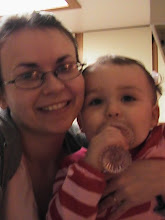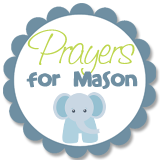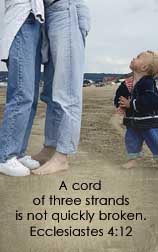Nursing toddlers benefit NUTRITIONALLY
- Although there has been little research done on children who breastfeed beyond the age of two, the available information indicates that breastfeeding continues to be a valuable source of nutrition and disease protection for as long as breastfeeding continues.
- "Human milk expressed by mothers who have been lactating for >1 year has significantly increased fat and energy contents, compared with milk expressed by women who have been lactating for shorter periods. During prolonged lactation, the fat energy contribution of breast milk to the infant diet might be significant."
-- Mandel 2005
- "Breast milk continues to provide substantial amounts of key nutrients well beyond the first year of life, especially protein, fat, and most vitamins."
-- Dewey 2001
- In the second year (12-23 months), 448 mL of breastmilk provides:
- 29% of energy requirements
- 43% of protein requirements
- 36% of calcium requirements
- 75% of vitamin A requirements
- 76% of folate requirements
- 94% of vitamin B12 requirements
- 60% of vitamin C requirements
- Studies done in rural Bangladesh have shown that breastmilk continues to be an important source of vitamin A in the second and third year of life.
-- Persson 1998
- It's not uncommon for weaning to be recommended for toddlers who are eating few solids. However, this recommendation is not supported by research. According to Sally Kneidel in "Nursing Beyond One Year" (New Beginnings, Vol. 6 No. 4, July-August 1990, pp. 99-103.):
Some doctors may feel that nursing will interfere with a child's appetite for other foods. Yet there has been no documentation that nursing children are more likely than weaned children to refuse supplementary foods. In fact, most researchers in Third World countries, where a malnourished toddler's appetite may be of critical importance, recommend continued nursing for even the severely malnourished (Briend et al, 1988; Rhode, 1988; Shattock and Stephens, 1975; Whitehead, 1985). Most suggest helping the malnourished older nursing child not by weaning but by supplementing the mother's diet to improve the nutritional quality of her milk (Ahn and MacLean. 1980; Jelliffe and Jelliffe, 1978) and by offering the child more varied and more palatable foods to improve his or her appetite (Rohde, 1988; Tangermann, 1988; Underwood, 1985).
- The American Academy of Family Physicians notes that children weaned before two years of age are at increased risk of illness (AAFP 2001).
- Nursing toddlers between the ages of 16 and 30 months have been found to have fewer illnesses and illnesses of shorter duration than their non-nursing peers (Gulick 1986).
- "Antibodies are abundant in human milk throughout lactation" (Nutrition During Lactation 1991; p. 134). In fact, some of the immune factors in breastmilk increase in concentration during the second year and also during the weaning process. (Goldman 1983, Goldman & Goldblum 1983, Institute of Medicine 1991).
- Per the World Health Organization, "a modest increase in breastfeeding rates could prevent up to 10% of all deaths of children under five: Breastfeeding plays an essential and sometimes underestimated role in the treatment and prevention of childhood illness." [emphasis added]
- Many studies have shown that one of the best ways to prevent allergies and asthma is to breastfeed exclusively for at least 6 months and continue breastfeeding long-term after that point.
Breastfeeding can be helpful for preventing allergy by:- reducing exposure to potential allergens (the later baby is exposed, the less likely that there will be an allergic reaction),
- speeding maturation of the protective intestinal barrier in baby's gut,
- coating the gut and providing a barrier to potentially allergenic molecules,
- providing anti-inflammatory properties that reduce the risk of infections (which can act as allergy triggers).
- Extensive research on the relationship between cognitive achievement (IQ scores, grades in school) and breastfeeding has shown the greatest gains for those children breastfed the longest.
- According to Sally Kneidel in "Nursing Beyond One Year" (New Beginnings, Vol. 6 No. 4, July-August 1990, pp. 99-103.):
"Research reports on the psychological aspects of nursing are scarce. One study that dealt specifically with babies nursed longer than a year showed a significant link between the duration of nursing and mothers' and teachers' ratings of social adjustment in six- to eight-year-old children (Ferguson et al, 1987). In the words of the researchers, 'There are statistically significant tendencies for conduct disorder scores to decline with increasing duration of breastfeeding.'"
- According to Elizabeth N. Baldwin, Esq. in "Extended Breastfeeding and the Law":
"Breastfeeding is a warm and loving way to meet the needs of toddlers and young children. It not only perks them up and energizes them; it also soothes the frustrations, bumps and bruises, and daily stresses of early childhood. In addition, nursing past infancy helps little ones make a gradual transition to childhood."
- Baldwin continues: "Meeting a child's dependency needs is the key to helping that child achieve independence. And children outgrow these needs according to their own unique timetable." Children who achieve independence at their own pace are more secure in that independence then children forced into independence prematurely.
- The American Academy of Pediatrics recommends that "Breastfeeding should be continued for at least the first year of life and beyond for as long as mutually desired by mother and child... Increased duration of breastfeeding confers significant health and developmental benefits for the child and the mother... There is no upper limit to the duration of breastfeeding and no evidence of psychologic or developmental harm from breastfeeding into the third year of life or longer." (AAP 2005)
- The American Academy of Family Physicians recommends that breastfeeding continue throughout the first year of life and that "Breastfeeding beyond the first year offers considerable benefits to both mother and child, and should continue as long as mutually desired." They also note that "If the child is younger than two years of age, the child is at increased risk of illness if weaned." (AAFP 2001)
- A US Surgeon General has stated that it is a lucky baby who continues to nurse until age two. (Novello 1990)
- The World Health Organization emphasizes the importance of nursing up to two years of age or beyond (WHO 1992, WHO 2002).
- Scientific research by Katherine A. Dettwyler, PhD shows that 2.5 to 7.0 years of nursing is what our children have been designed to expect (Dettwyler 1995).
References [see also position statements supporting breastfeeding]
- Extended nursing delays the return of fertility in some women by suppressing ovulation (References).
- Breastfeeding reduces the risk of breast cancer (References). Studies have found a significant inverse association between duration of lactation and breast cancer risk.
- Breastfeeding reduces the risk of ovarian cancer (References).
- Breastfeeding reduces the risk of uterine cancer (References).
- Breastfeeding reduces the risk of endometrial cancer (References).
- Breastfeeding protects against osteoporosis. During lactation a mother may experience decreases of bone mineral. A nursing mom's bone mineral density may be reduced in the whole body by 1 to 2 percent while she is still nursing. This is gained back, and bone mineral density may actually increase, when the baby is weaned from the breast. This is not dependent on additional calcium supplementation in the mother's diet. (References).
- Breastfeeding reduces the risk of rheumatoid arthritis. (References).
- Breastfeeding has been shown to decrease insulin requirements in diabetic women (References).
- Breastfeeding moms tend to lose weight easier (References).
http://www.kellymom.com/bf/bfextended/ebf-benefits.html
**********************************
I love this article. It's great. So far, our breastfeeding relationship is going great, but I am hoping to wean Anna by 2. She still thinks that midnight snacks are the cat's pajamas! I'm going to go through the list real quick, see how we measure up to this.
1. Benefit Nutritionally--Anna, despite having short parents, has always been above average in height and weight and has always met milestones early for all things: crawling, walking, talking... This says a lot since she is honestly a very picky little eater!!! I praise her when she eats anything but mama milk!
2. Sick Less Often--Quite true. Anna has had a few colds and a few fevers, but everything has always resolved within 24 hours. She has never been hospitalized or on antibiotics for anything. She has never had RSV or Ear Infections. The worst thing in her entire life was a 24 hour flu back in, I think, November. We all had it. Anna got it first, but by the following morning she was well again--lucky thing--I spent the next two or three days fighting off what I had, everyone else in the house also got sick and spent several days recovering. I truly think it was because she was nursing that she recovered so quickly!
3. Fewer Allergies--Also true with us. Anna has never had even a runny nose from allergies and she has no food allergies.
4. Smart--I hate to brag, but I think Anna is a smart little cookie. She already says several two to three word sentences, and like I said earlier she has been early on all of her milestones.
5. Adjusted Socially--Anna definitely plays well with others. Everywhere we go, she runs up to other children, waves, and says, "HI! HI!" until she gets their attention lol. But she also plays very well on her own. Both are very good attributes!
6. Normal--Of course she's normal. She plays, she throws tantrums, she laughs, she tickles, she "reads" her books, she plays with dollies... as normal as they get!
7. Mom's Benefits--I can certainly say I have no cancers LOL. I can also say that the baby weight melted off and still is coming off slowly.











2 Comments:
Great Post! I agree 100% with all of those things. Sometimes it bums me out knowing that Joshua was exclusively BF and still got sick...but then I think of how much sicker he would have been if he hadn't been BF...it would have been unbearable! I got so much grief for BF'ing him until 2, but oh well. Do you know that the average age for weaning in the Bible was between 3 and 5 years old?
Wonderful information! At Ladybug's 12 month check up, the pediatrician suggested that I cut back on nursing because of the extra calories. But looking at all the other nutritionals that are so important, plus that we're reaching a stage where nursing is for comfort, I can't see how cutting back is the right thing to do.
Our DD is off the growth charts, but she's healthy and reaching all of the milestones. I cannot understand how people view toddler nursing as a bad thing. I could do without all the squirming, but she's still my baby and I want to give her the best that I can.
Post a Comment